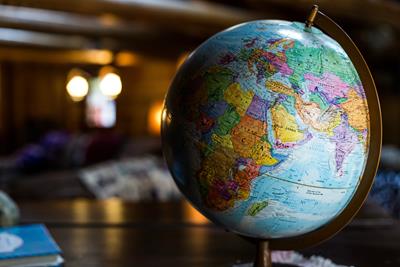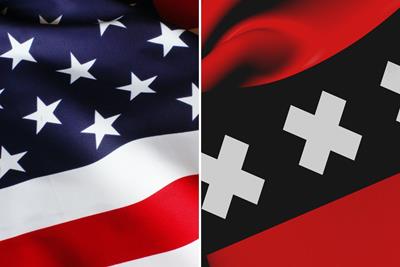
Sunday June 30, 2019
By Andrew Ward
 Travel
Travel
Medical cannabis reciprocity means that patients can purchase and consume their medicine in other approved jurisdictions. Because of these laws, patients can travel without fear of not having their required medication, or running afoul with the local law. Will we see medical reciprocity any time soon as cannabis legalization inches across the globe? You may not want to hold your breath.
Reciprocity Varies By State in the U.S.
Reciprocity laws are on the books in several U.S. states. In these states, cardholders from approved states are allowed to buy their medical cannabis while in the state. Without federal cannabis regulations in the United States, reciprocity laws vary by each state. As such, it is advised even more than usual that a person understands the law of any state they plan to visit. Here is a glimpse into how some states regulate the matter and the different laws they have:
Current U.S. Medical Cannabis Reciprocity Laws:
- Arizona won't allow visitors to purchase from dispensaries, but out of state patients can possess up to 2.5 ounces without risking any trouble from the law.
- California won't honor out of state cards, as it does not have a dedicated reciprocity program. That said, out of state patients can apply for a California medical card to make purchases while in the state.
- Maine allows out of state patients to consume medical marijuana for up to 30 days after entering the state. However, if they want to purchase medical cannabis, they'll need to register with the state. It is advised that applicants have documents from their home state proving that everything is up to date and in order.
- In Michigan, its reciprocity program mirrors its local laws that allow for up to 2.5 ounces of cannabis.
- Oklahoma allows medical cardholders from out-of-state to apply for a temporary in-state medical card. The cost of the temporary license is $100.
- New Hampshire is another state that allows out of state patients to possess cannabis but not purchase it. Additionally, out of state cards are honored if the condition they suffer from is accepted in New Hampshire.
- Rhode Island is one state that does not accept out of state cards for purchases but has had several reports of certain dispensaries allowing sales. Proceed with caution.
Last year, Washington, D.C. began its reciprocity laws. In its case, out of town cardholders from most states could purchase medical cannabis. Meanwhile, Hawaii recently started its own reciprocity program. In the Sunshine State, visiting patients can receive a card valid for up to 60 days. To qualify, a person must have a valid medical ID from another state with a condition that is accepted on Hawaii's list of medical conditions.
How the United States Stacks Up to Canada
Some will want to compare reciprocity to our neighbors to the north in Canada. That, however, is not a fair assessment. With Canada legalizing adult use laws, its stance on cannabis is much different than the U.S. For example, in Canada, any adult can legally transport up to 30 grams of cannabis when traveling within the country. A person trying to do the same with cannabis coming into Canada will be met with a legal situation once they meet up with Canadian customs, or likely sooner as they attempt to pass through security at their home airport.

While U.S. patients aren’t able to benefit much from Canada’s laws (you can still purchase cannabis recreationally though if you’re of age), the country’s reciprocity laws have allowed for American companies to get further involved in the business. One example is Evolab, a Colorado marijuana extraction company. In a May 2018 blog post, they explained why doing business with Canada has its benefits, including reciprocity. "It certainly expands our breadth and reach of products. The cool part about working with Canada is those [other] countries have reciprocity, meaning you can ship THC or cannabis products to other countries," explained Nicole Smith, CEO of Evolab and CBx Sciences. "We don't have that opportunity here in the States."
Can International Medical Cannabis Reciprocity Happen?
Unless laws change in prominent countries soon, then the likelihood of international medical cannabis reciprocity is almost assuredly just a hope at this time. Almost every country in the world continues to prohibit cannabis in some form or another. Even in nations like the U.S. where it has relaxed its regulations. As such, a patient or adult consumer should not hold out hope that they will be able to bring a couple of grams of Do-Si-Dos on a transcontinental flight anytime soon. The same goes for patients hoping to bring their oil across the ocean, even if it is intended for a sick child.
That said, legalization rumblings have become more common in recent years and months. The U.S. is far from the only nation discussing the topic, and could even find itself being lapped by other nations progressing cannabis reform. Newsweek closed 2018 off by highlighting a number of countries across the globe that could see legalization efforts pick up in 2019. In Europe, it highlights France, Italy and Luxembourg, while Lebanon and the U.S. were also in the discussion. Meanwhile, several South American nations continue to advance the issue as some African countries are now doing the same.

So, while talk of international reciprocity is likely a longshot for now, we could see sweeping adult-use legalization progress at some point. Though gradual global legalization may stall this process, there is no harm in hoping for it to come to fruition. Some believe that legalization could even wipe out the need for medical reciprocity as patients of legal age could simply buy their medicine recreationally as adults in other countries. While true in some cases, certain states and regions offer medical patients additional benefits including tax breaks, more potent items and the ability to purchase and possess more at any time. On a global scale, these benefits may fade away and negate the need for a global reciprocity market. Ultimately, we will have to wait and see to find this information out.
What are your thoughts on international cannabis reciprocity? Share your thoughts in the comments below!
Photo Credit: Kyle Glenn (license)







